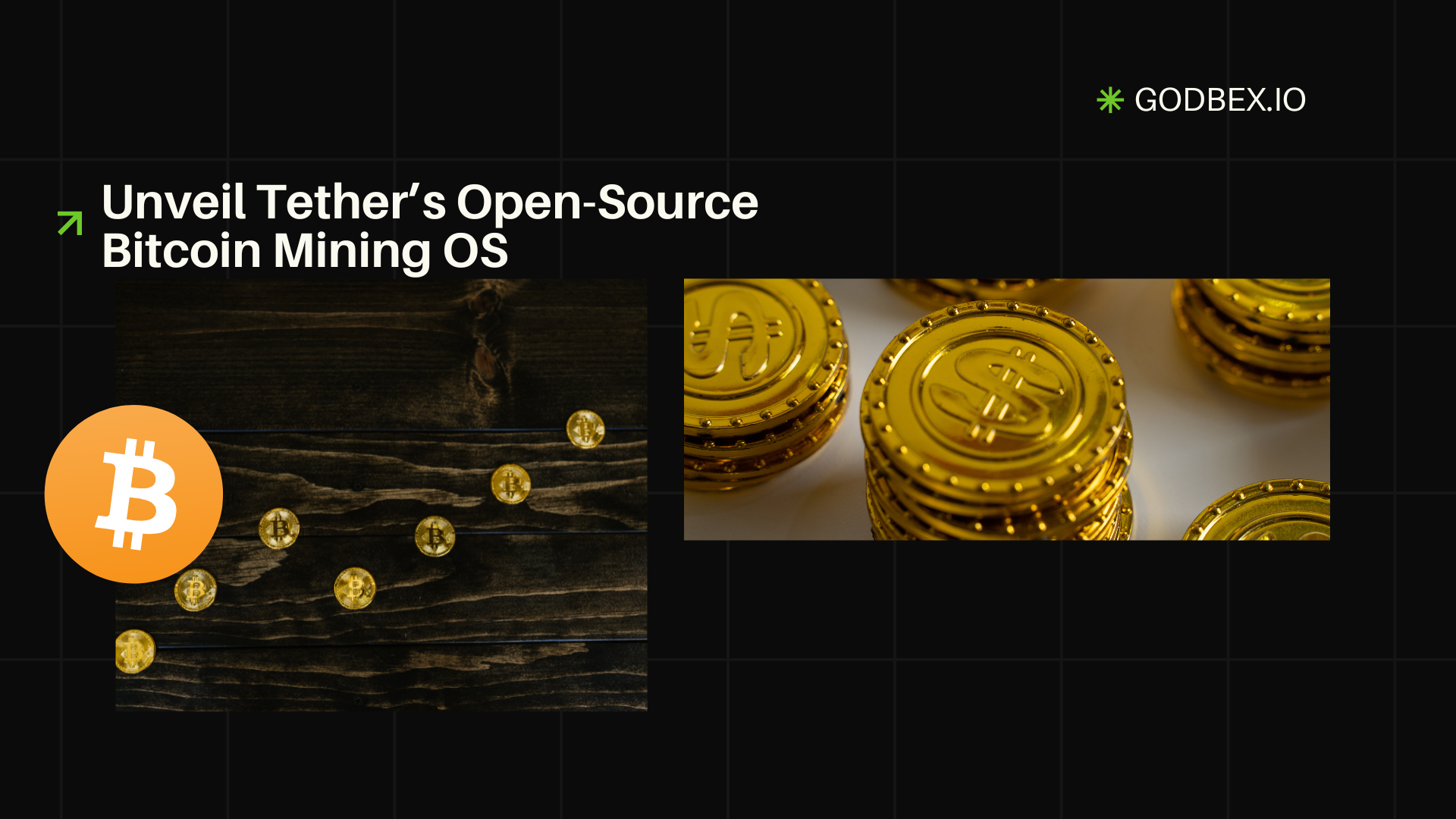
Cryptocurrency mining has long been dominated by large-scale operations with access to cheap energy and advanced hardware. However, Tether, the world’s largest stablecoin issuer, is challenging this status quo with its latest initiative: an open-source Bitcoin mining operating system (MOS). Announced in May 2025, this move is poised to democratize mining, empower smaller players, and address growing concerns about centralization in the Bitcoin network.
What Is Tether’s Open-Source Bitcoin Mining OS?
Tether’s Bitcoin Mining OS (MOS) is a modular, open-source software designed to streamline mining operations for both individual and institutional miners. The platform aims to simplify tasks such as hardware management, energy optimization, and pool coordination, making it easier for new entrants to compete with established mining giants.
By open-sourcing the software, Tether eliminates proprietary barriers that have historically favored publicly listed mining companies with deep technical resources. This approach aligns with Tether’s broader mission to “empower diverse companies with scalable operations” and bridge gaps in the mining sector.
Key Features of the Open-Source Software
- Modular Design: The software allows miners to customize workflows, integrating with existing hardware and pools.
- Energy Efficiency: Optimized algorithms reduce electricity consumption, a critical factor for profitability in regions with high energy costs.
- Scalability: Supports small-scale miners and large enterprises alike, enabling seamless expansion of mining operations.
- Transparency: Open-source code invites community contributions, fostering innovation and security audits.
Tether’s CEO, Paolo Ardoino, emphasized the project’s potential in a statement: “This initiative is about creating a level playing field. Smaller players will no longer be at a disadvantage when competing with centralized mining entities.”
Why This Matters for Bitcoin Decentralization
Bitcoin’s core principle of decentralization is under threat as mining becomes increasingly concentrated in the hands of a few large firms. Tether’s open-source software addresses this by lowering entry barriers for new miners, particularly in regions with limited infrastructure. For example, public miners in countries like Nigeria or Argentina—where energy costs are high—can now leverage Tether’s tools to optimize operations and remain competitive.
The move also aligns with broader industry trends. A 2024 report by the Blockchain Transparency Institute found that 60% of Bitcoin’s hash rate is controlled by just five mining pools. By distributing mining tools freely, Tether aims to fragment this dominance and strengthen Bitcoin’s resilience against censorship or single points of failure.
Industry Reactions: Hope and Skepticism
The announcement has sparked mixed reactions from the crypto community.
- Supporters argue that open-sourcing mining software could “democratize Bitcoin’s future,” as stated by DeFi researcher Sarah Chen. “This is a step toward true decentralization. If Tether’s tools succeed, we’ll see a more equitable distribution of hash power,” she said.
- Critics , however, question Tether’s motives. Some speculate that the move is a strategic play to expand Tether’s influence in Bitcoin mining, given its $500M investment in South American mining facilities in 2023. Others worry that open-source adoption may not address deeper issues like energy consumption or regulatory scrutiny.
Despite skepticism, the open-source model has precedent in the crypto space. Bitcoin itself is open-source, and platforms like Ethereum’s mining software have historically fostered innovation. Tether’s approach could follow a similar trajectory, provided the community adopts the tools widely.
How This Impacts the Mining Ecosystem
- For Small Miners: The software reduces operational complexity, enabling solo miners to compete with large pools. For instance, a miner in Texas using Tether’s OS could optimize GPU usage and energy costs to achieve profitability with a home setup.
- For Large Miners: While Tether’s tools may threaten centralized operations, they also offer opportunities for collaboration. Mining firms could integrate the software into their infrastructure to cut costs and improve efficiency.
- For Regulators: The open-source nature of the software may complicate oversight, as decentralized mining operations are harder to track. This could intensify debates over energy policies and environmental impact.
Challenges and Risks
- Adoption Barriers: Even with free tools, new miners require technical expertise to deploy the software effectively. Tether may need to provide tutorials or partner with educational platforms to drive adoption.
- Security Concerns: Open-source projects are vulnerable to malicious code injections. Tether must ensure rigorous audits to maintain trust.
- Market Competition: Established mining companies may resist the shift, potentially lobbying against Tether’s initiatives.
Future Outlook
Tether’s open-source mining OS is part of a broader strategy to expand its footprint in Bitcoin. Alongside the software, the company recently launched Tether AI, an open-source platform linking crypto payments with decentralized AI agents. These moves signal Tether’s ambition to become a cornerstone of the Web3 ecosystem.
Analysts predict the software could gain traction within 12–18 months, particularly if Bitcoin’s price surges to $100,000+ in 2025. A stronger Bitcoin network would incentivize more miners to join, and Tether’s tools could accelerate this growth.
Conclusion
Tether’s open-source Bitcoin Mining OS represents a bold experiment in decentralizing mining. By removing technical and financial barriers, the platform could empower a new generation of miners and strengthen Bitcoin’s foundational principles. However, success hinges on community adoption, regulatory responses, and Tether’s ability to maintain software integrity. As the crypto industry evolves, this initiative may redefine what it means to mine Bitcoin in the 21st century.